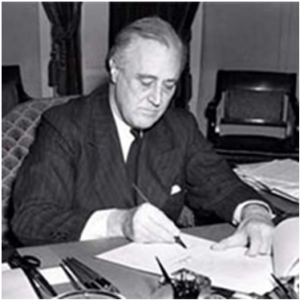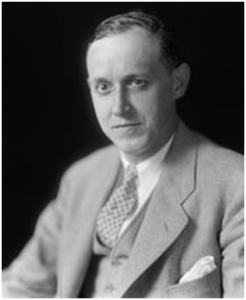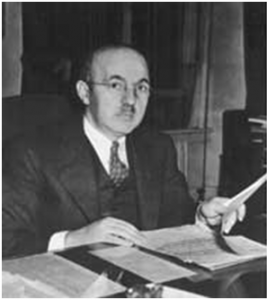 Kelleigh Nelson
Kelleigh Nelson
It’s not a choice between war and peace. It’s a choice between war and endless war. It’s not appeasement. I think it’s better even to call it American self-interest. —Former CIA agent, Michael Scheuer
When we look at how, constitutionally, only Congress can declare war, and that is routinely ignored. Not NATO or the UN, but Congress has to authorize these endless wars, and it isn’t. —Edward Snowden
If Tyranny and Oppression come to this land, it will be in the guise of fighting a foreign enemy. No nation could preserve its freedom in the midst of continual warfare. —President James Madison
Few people have heard of the “Lend-Lease Act” and its revolutionary change to our Constitution. In his 1961 Farewell to the Nation Speech President Dwight D. Eisenhower stated, “In the councils of government, we must guard against the acquisition of unwarranted influence, whether sought or unsought, by the military-industrial complex.”
But it’s not just the military industrial complex, it’s the Soviet agents who long ago infiltrated the upper echelons of our government and gave us this unconstitutional legislation.
The Lend Lease Act
 The Lend Lease Act was proposed in 1940, and President Franklin Roosevelt signed it into law on March 11, 1941. It was the principal means for providing military aid to foreign nations during WWII. The act authorized the president to transfer arms or any other defense materials for which Congress appropriated money to “the government of any country whose defense the President deems vital to the defense of the United States.” Despite strong protests from isolationists, the Act passed by wide margins in the House and Senate.
The Lend Lease Act was proposed in 1940, and President Franklin Roosevelt signed it into law on March 11, 1941. It was the principal means for providing military aid to foreign nations during WWII. The act authorized the president to transfer arms or any other defense materials for which Congress appropriated money to “the government of any country whose defense the President deems vital to the defense of the United States.” Despite strong protests from isolationists, the Act passed by wide margins in the House and Senate.
<– FDR signs the Land-Lease Act in 1941 to give aid To Britain and China. President Roosevelt
FDR sold the Act to the American public as aid to Great Britain, but in reality Lend Lease aid to the Soviet Union was a priority that superseded all other allies’ military needs, including our own.
American aid to the Soviet Union included weapons, ammunition, tanks, oil, fighter aircraft, trucks and jeeps, and materials for the making of the atomic bomb including uranium. (Sound familiar?) In addition, lavish personal items and great quantities of food, including 200 million pounds of butter, were sent while at the same time America had strict rationing of goods. Our patents, including military blueprints also reached the Soviets in the hundreds of thousands. It was indiscriminate aid to the Soviet Union. (American Betrayal chapter 2, Diana West)
Executive Power
The Act allowed the president alone to make the decision regarding transferring materials to beleaguered nations without payment as required by the Neutrality Act of 1939. It also skirted the thorny problems of war debts that had followed World War I; Britain had defaulted on $3.5 billion. The Neutrality Act of 1937 did contain one important concession to Roosevelt: nations were allowed, at the discretion of the President, to acquire any items except arms from the United States, so long as they immediately paid for such items and carried them on non-American ships—the so-called “cash-and-carry” provision. The revised 1939 Act allowed arms to be sold, but once America entered WWII, the Act became irrelevant.
The Johnson Act of 1934 also prohibited the extension of credit to countries that had not repaid U.S. loans made to them during World War I—which included Great Britain who desperately needed funds to fight Hitler. But it was Russia’s Stalin who wrote to FDR asking him to help the British. If Britain fell to the Nazis, the Soviet Union would be next. In securing aid to the UK, Stalin had more time to ready his red army for war.
Over the course of the war, the United States contracted Lend-Lease agreements with more than 30 countries, dispensing some $50 billion in assistance. The agreements signed by the United States and the recipient nations laid the foundation for the creation of a new international economic order in the postwar world and it has continued until now.
Isolationists, such as Republican senator Robert Taft, opposed it. Taft correctly noted that the bill would “give the President power to carry on a kind of undeclared war all over the world, in which America would do everything except actually put soldiers in the front-line trenches where the fighting is.” Now, however, without action by Congress, the President is allowed to send military support of any kind, including our troops, to any country deemed “vital to the defense of America.”
Soviet Agents
In Diana West’s books, American Betrayal and The Red Thread she exposes the revolutionary and anti-constitutional Lend Lease Act. The three Soviet agents behind the Act were Armand Hammer, Harry Hopkins and Harry Dexter White.
In The Red Thread, West states, “We may now regard Lend Lease as the founding document of the ‘new world order’ that arose in the aftermath of WWII, its heaviest cornerstones laid by covert Soviet agents Alger Hiss at the United Nations and Harry Dexter White at the International Monetary Fund. The sea change (with Lend Lease) came in making ‘any country’s defense’ vital to our own.”
Hiss was also president of the Carnegie Endowment for International Peace and was involved in the establishment of the United Nations both as a U.S. State Department official and as a UN official.
What no one but a few intelligence professionals knew was that in the early 1940s our government had recorded thousands of coded messages from Soviet agents in Washington and New York to their Moscow superiors. In later years they decoded those messages proving Hiss and White were indeed Soviet spies as charged. Under their code name, the “Venona Papers” are now available to everyone through the Library of Congress.
President Truman knew in 1950 about the Soviet agents as did Eisenhower who was elected after him, along with a select group of Washington elites, but no one seemed to care. There was a conspiracy of silence that continues to this day.
Armand Hammer
In his book, Dossier: the Secret History of Armand Hammer, Edward Jay Epstein calls Hammer a traitor. By 1940, British intelligence had developed a lengthy dossier on Hammer. It identified him and his associates as part of the Soviet “secret regime” in the West. Earlier that year, it had even monitored the movements of his brother Victor in Egypt (then a British protectorate) on the suspicion that the Hammer Galleries were a front for the Soviet intelligence service. Yet American history still refers to Hammer as an industrialist (CEO of Occidental Petroleum) and philanthropic.
Nineteen years earlier, Hammer had a meeting with Lenin, who sought to break the isolation of the Soviet Union by making him his “path” to American business.
At the time, Hammer was acting to influence America knowing that if Britain fell to the Nazis, the Soviet Union would be next. He went directly to President Roosevelt through his wife Eleanor. Hammer had contributed substantial funds to FDR’s reelection campaign, but had also personally financed an extraordinary radio dramatization which promoted the achievements of FDR’s New Deal. He sent Eleanor a copy of the recording and that opened the door for him to promote the Lend Lease to FDR regarding aid to the UK, and ultimately to Russia.
Hammer came armed with a large volume of editorials from U.S. newspapers from October 1940, the fruits of a survey he had commissioned to show that newspapers favored financial aid to Great Britain. He convinced FDR that he would gain popular support by effecting Hammer’s plan. FDR put him together with his personal advisor and secretary of commerce, Harry Hopkins.
FDR sent Harry Hopkins who was to be the czar of Lend Lease to New York to meet with Hammer on the plan. Hopkins later flew to London to discuss the plan with Churchill and a few months later Hopkins negotiated the destroyers-for-bases swap with the British. This laid the precedent for waiving restrictions on military aid for those nations fighting Hitler. When Hitler invaded Russia in June 1941, this opened the door to Lend-Lease for the Soviets.
 Harry Hopkins
Harry Hopkins
Harry Hopkins was referred to as the co-president with FDR. He was unelected and unconfirmed and according to Life Magazine, a one-man cabinet. He was also the architect of FDR’s New Deal. He slept in the White House in the Lincoln bedroom and worked at Lincoln’s desk. He was FDR’s constant traveling companion, was with him for breakfast and before he nodded off to sleep at night. And Soviet agent Harry Hopkins was the boss of the Lend Lease program. It was the lifeline to the Soviet war with Hitler and it was run via the Kremlin from inside the Roosevelt White House and bypassed the State Department.
As a devotee of Marx, in 1941 Hopkins wrote, “When a democratic victory is won, then the great wealth of the world must be shared with all people.” Sounds like our democratic presidential candidates of today.
In a message dated May 29, 1943, Iskhak Akhmerov, the chief Soviet “illegal” agent in the United States at the time, referred to an Agent 19 who had reported on discussions between Roosevelt and Winston Churchill in Washington at which the agent had been present. Only Harry Hopkins meets the requirements for this agent’s identity. Akhmerov, in a lecture in Moscow in the early 1960s, identified Hopkins by name as “the most important of all Soviet wartime agents in the United States.”
Victor Kravchenko
Victor Kravchenko was a Soviet official who defected to America. Hopkins wanted him sent back to Russia, but FDR was afraid Kravchenko would be murdered by the Soviets. Kravchenko wrote two books on the horrors of life in the USSR prior to Solzhenitsyn’s defection.
He had been at the Soviet headquarters of Lend Lease in Washington. After the war, he testified before Congress that the Soviet Lend Lease operation he defected from and that was located only three blocks from the White House, was the Soviet spying, thieving and ransacking Commission. They succeeded in stealing as many industrial and military secrets as possible. (American Betrayal, Chapter 5, Diana West)
 Harry Dexter White
Harry Dexter White
Harry Dexter White was an American economist and senior U.S. Department of Treasury official. He was the first head of the International Monetary Fund and played an important role in formation of the World Bank. He was also a Soviet secret agent—”the most highly–placed asset the Soviets possessed in the American government.”
White was the assistant secretary of the treasury in the administration of Franklin Delano Roosevelt, and caused incalculable harm to the United States. In “Operation Snow,” White did everything within his power to scuttle the peace efforts of the forces within the Japanese government that were striving to avoid war with the United States. He authored an ultimatum adopted as official policy by FDR that upped the ante of belligerent acts Roosevelt was directing at Japan.
Through the infamous Lend-Lease program, White helped facilitate the transfer of billions of dollars in aid to Stalin.
In Albert Weeks’ book, Russia Life-Saver, Lend-Lease Aid to the U.S.S.R. in World War II, a book drawing on Russian revisionism, he tells us that White was “one of the main drafters of the administration’s side of the Lend-Lease particulars, especially as Lend Lease was to be extended to the Russians.
But Weeks also tried to destroy patriot Major George Racey Jordan who was the supervisory expediter of Soviet Lend Lease aid and was stationed at Great Falls, Montana, the hub of the Soviet pipeline. Jordan saw that atomic secrets were being sent to the Soviets. Weeks, in his book, claimed it was unverifiable myth, but Jordan wrote a book on what he kept and saw in his diaries.
While providing the Soviets with every possible assistance, White was doing everything to cut off aid that had been appropriated by Congress to assist our ally Chiang Kai-shek’s anti-communist government in China. White was a key operative in treachery that pushed China into Communist hands. Today, we see Hong Kong’s demonstrations for freedom from Communist China where the demonstrators fly and carry the American flag and sing our national anthem.
Conclusion
Our President brought home our soldiers at the Syrian border and quietly reduced our forces in Afghanistan by 2,000. Andrew Bostom and Cliff Kincaid tell us not to romanticize the Kurds, that our President is doing exactly what he promised his supporters he would do. As a result, the Commander in Chief sent Special Forces after ISIS leader Abu Bakr al-Baghdadi who was killed. There were no leaks, and no one knew about the successfully planned raid.
Trump was raised on Norman Vincent Peale’s positive, pro-freedom, pro-capitalist, anti-totalitarian ideology. His family attended Peale’s church. Andrew Bostom writes, “President Trump’s own muscular anti-totalitarianism stands in stark contrast to the hard left—even overtly Communist—sympathies of the cabal of anti-Trump putschists aligned against him.”
FDR’s ideology of building a democratic world via Lend Lease is coming to an end through Donald Trump. For nearly 80 years, America has sent taxpayer dollars and our soldiers to foreign lands. Trump promised to get us out of this nation-building business and he’s doing it. The globalist elite of both parties are enraged.
© 2019 NWV – All Rights Reserved
E-Mail Kelleigh Nelson: proverbs133@bellsouth.net






